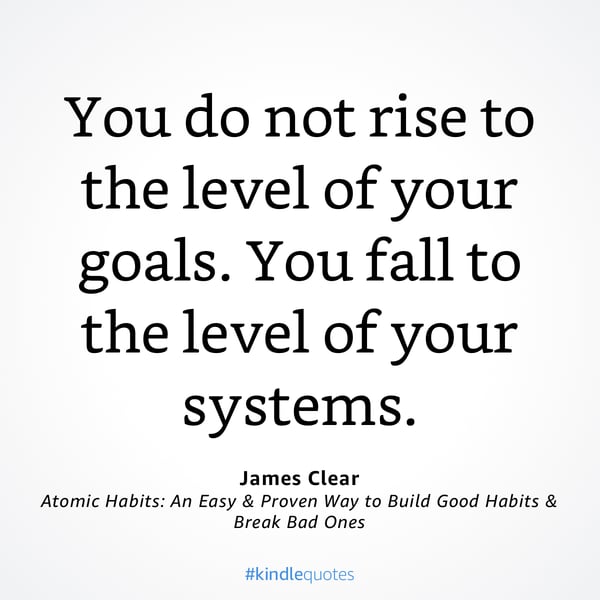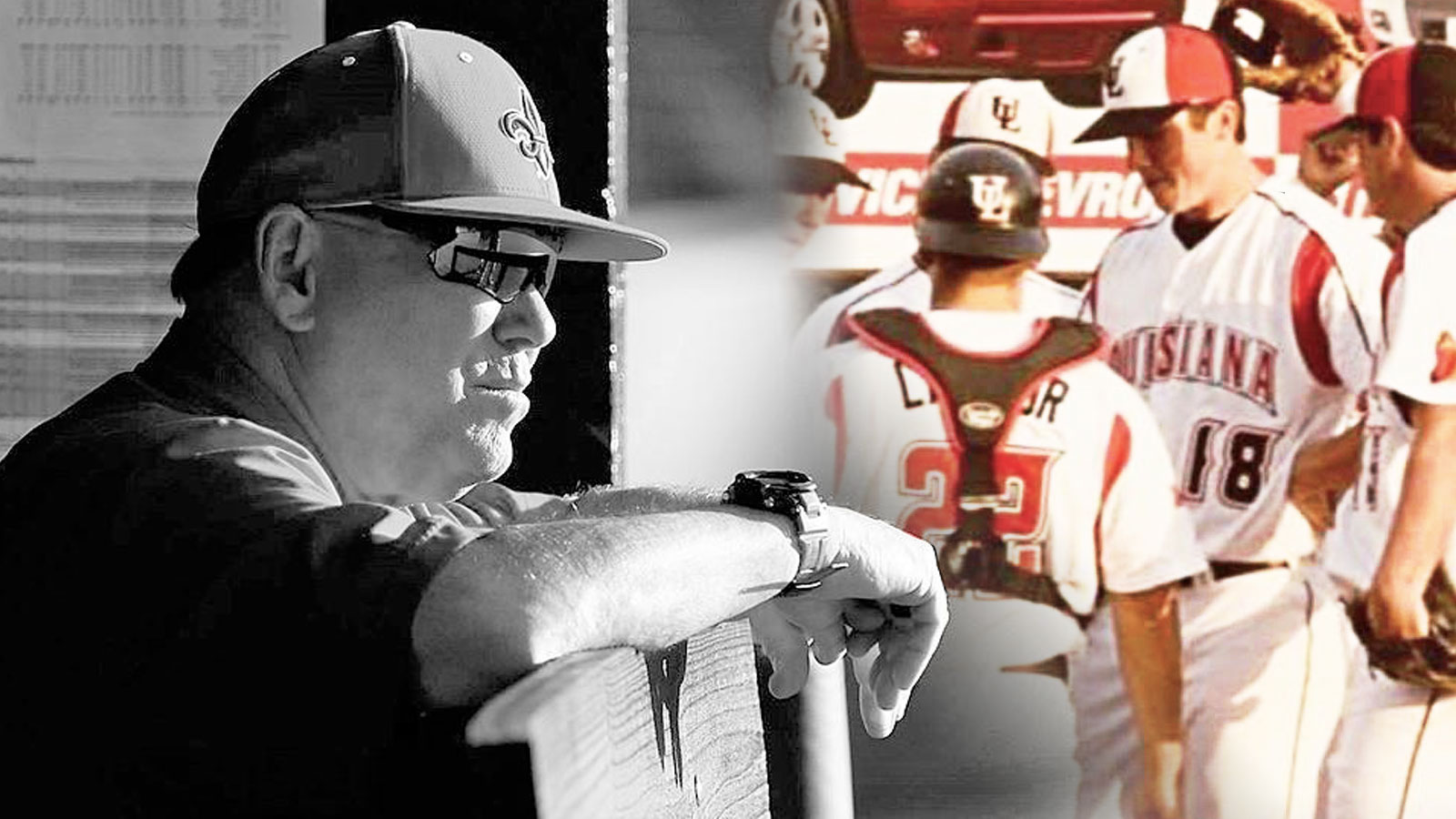How to shift your sales strategy to sell remotely!
Check out the practical ways Blaine LaFleur sells remotely! Want to learn more of what this looks like for your sales team? Connect with us!

7 min read
 Tyler LaFleur
:
Updated on November 26, 2025
Tyler LaFleur
:
Updated on November 26, 2025
The common argument is that most people just need bigger goals. But it appears that the goals aren’t as powerful as the habits.
For example: in any competition or sporting event, don’t both teams have the same goal? To win?
What does the winner have that the loser didn’t?
"Similarly, habits often appear to make no difference until you cross a critical threshold and unlock a new level of performance. In the early and middle stages of any quest, there is often a Valley of Disappointment.You expect to make progress in a linear fashion and it’s frustrating how ineffective changes can seem during the first days, weeks, and even months. It doesn’t feel like you are going anywhere. It’s a hallmark of any compounding process: the most powerful outcomes are delayed.This is one of the core reasons why it is so hard to build habits that last. People make a few small changes, fail to see a tangible result, and decide to stop. You think, “I’ve been running every day for a month, so why can’t I see any change in my body?”Once this kind of thinking takes over, it’s easy to let good habits fall by the wayside. But in order to make a meaningful difference, habits need to persist long enough to break through this plateau—what I call the Plateau of Latent Potential."
Goals are about the results you want to achieve.
Systems are about the processes that lead to those results.

"Behavior that is incongruent with the self will not last" - James Clear
You know, you brush them for a few days then some kind of crisis happens at work, or your kids are stressing you to the gills and you have to choose between either bringing them to soccer practice (or school) or brushing your teeth.
So being the good mom or dad that you are, you of course choose the kids and their overstimulating soccer practice. And who wouldn't?
Then once things calm down, you realize that you haven't brushed your teeth in a few days, so you better get back on that routine before you have no more friends or even an inkling of romance in your marriage...
Does that ever happen to any of you? Of course not!
Brushing your teeth is a part of who you are in the morning and before bed. It is already part of your routine and has been for the majority of your life (learn more about term life insurance).
Looking at your watch when you aren't even wearing it, is a habit.
Clicking at a space on your phone where your app used to be before you moved it is technically a habit.
Pulling for the steering wheel shift on a car that has a center console shift is a deeply ingrained habit.
True habits take time to engrain. It is the consistent repetition that actually make them so.
Again, while differentiating between habits and choices, we come to the same crossroad while attempting to define good habits from bad habits.
Some adults attempt to cover up their poor choices by naming them "bad habits."
But the take home point that everyone should really understand is this: Are the actions that you are labelling "bad habits" even habits at all?
Or are they simply poor choices made at moments that you are at your weakest, most stressed, or most vulnerable?
Ultimately, the true test of whether or not a habit is technically good or bad is if it moves you closer to where you intend to be or who you intend to become.
Not what your mom tells you...
Not what your friends tell you...
And surely not what Facebook tells you.
Below is a quick and easy cheatsheet for not only labeling bad habits from good, but also how to leverage your habits to move you closer to where you intend to go in life personally, financially, physically, mentally, or organizationally.
Write down your biggest and most lofty goal. (What do you want to be when you grow up?)
Sit down and write out all the things you do or give your attention to, during the day, up until bedtime.
Then, the following day, go through all of them and mark them as either “conducive” or “not conducive” in regard to your goal.
First, stop doing the non-conducive garbage. (Stopping the negative behavior most often outweighs starting new counter behavior.)
Replace the non-conducive behavior with new, engaging, and efficacious conducive behavior.
If we want to dive a bit deeper into starting good habits and stopping bad ones, we can take James Clear's advice from the book and burn them into our psyche accordingly:
We can invert these laws to learn how to break a bad habit.
Mindset and cognitive habits don’t just play a role in the process of becoming healthier, they determine the long-term success or short-term failure, overall. We can label the mindsets as we wish, but labeling them may not provide the same amount of return as incrementally changing them on a daily basis.
But how do we know where to start? How do we know where our current mental ruts are leading us? What direction do we ultimately want to go in order to make our outcomes tomorrow better than those of today?
On the surface, a good measure of your current thinking can be seen in your daily actions and speech. It is quite uncommon for someone to behave and speak negatively when they are consistently and habitually thinking positively.
You wouldn’t label your friends or family that continually offered their services to you or consistently greeted you with a smile and warm manner, as depressed or stricken with grief, would you?
If it were just a façade, eventually you, and everyone around them would unveil it.
"There are three levels of change: outcome change, process change, and identity change. The most effective way to change your habits is to focus not on what you want to achieve, but on who you wish to become. Your identity emerges out of your habits. Every action is a vote for the type of person you wish to become. Becoming the best version of yourself requires you to continuously edit your beliefs, and to upgrade and expand your identity. The real reason habits matter is not because they can get you better results (although they can do that), but because they can change your beliefs about yourself."
At Vested, we value working with our partners on more than just their marketing.
We aim to ensure that their overall business potential and needs are met. Contact us to learn more!
As a certified HubSpot Partner Agency, we not only understand the benefits of using the inbound marketing platform to increase traffic and engagement, improve SEO, generate leads, design effective websites and boost sales, we know how to make it happen.
We are inbound marketing experts, SEO gurus and top-notch website developers.
Our team of Engineers Turned Marketers can help get you noticed - for a more innovative and effective way to reach customers, or provide a more seamless way for companies to find your services. Inbound Marketing has no limit to industry, serving from Crypto & NFT, mining, oil and gas, technology & automation, engineering, technology, construction, healthcare, oral surgery and Endodontal therapy, industrial & manufacturing, Cajun food & product distribution, Amazon sales, fast fashion, wholesale fashion and wholesale clothing, and term life insurance.

Check out the practical ways Blaine LaFleur sells remotely! Want to learn more of what this looks like for your sales team? Connect with us!

It’s easy to feel like we need to please everyone, and to think it’s okay to sacrifice our own mood and even state of mental health by making sure we...

23“His master replied, ‘Well done, good and faithful servant! You have been faithful with a few things; I will put you in charge of many...